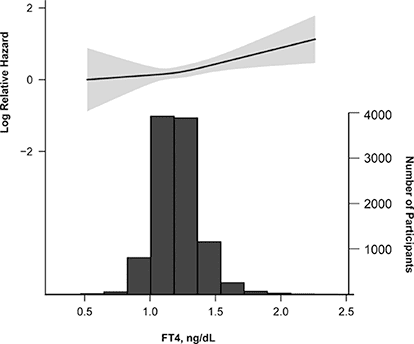I've been on a Ray Peat inspired diet for some years now including plenty of orange juice, milk, sugar, saturated fats and PUFA restriction. The results have been quite good and people are often surprised when I tell them my age. I've also tried different kinds of thyroid hormone from a variety of brands - Thyroid-S (from Sriprasit), Cynomel (Mexican Pharmacy) and Nutrimeds Bovine Thyroid.
A few months ago, I had a scary situation when my heart was beating too fast. The episode started after I got a new batch of Nutrimeds Bovine Thyroid (the previous batch had given me stellar results). I went to the doctor who suspected that it might be the strong coffee that I'd drunk that morning and aftenoon.
Anyway, after I dialled back on my dosage, things got to normal and I'm doing okay.
Today, I stumbled on this (rather-dated) article - High-Normal Thyroid Levels and Cardiac Arrest
I would like to know the consensus among the folks here about this study in particular and the issue of too much thyroid causing cardiac arrest in general.
Is there such a thing? If so, is it worth risking a thyroid dose if I have not been prescribed thyroid?
A few months ago, I had a scary situation when my heart was beating too fast. The episode started after I got a new batch of Nutrimeds Bovine Thyroid (the previous batch had given me stellar results). I went to the doctor who suspected that it might be the strong coffee that I'd drunk that morning and aftenoon.
Anyway, after I dialled back on my dosage, things got to normal and I'm doing okay.
Today, I stumbled on this (rather-dated) article - High-Normal Thyroid Levels and Cardiac Arrest
I would like to know the consensus among the folks here about this study in particular and the issue of too much thyroid causing cardiac arrest in general.
Is there such a thing? If so, is it worth risking a thyroid dose if I have not been prescribed thyroid?

